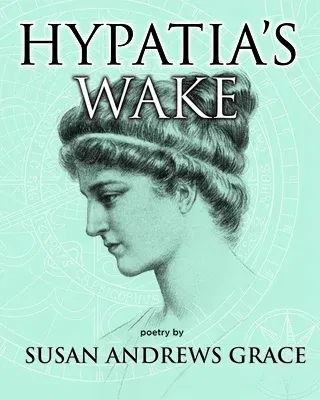Addresses the mythology versus the truth of Hypatia's life.
This compelling poetry collection presents Hypatia of Alexandria
(355-415 CE) the Egyptian Neoplatonic philosopher, astronomer, and
mathematician. Often credited as the first female mathematician, little
else is known about Hypatia, leading to many false and fanciful
representations of her. HYPATIA'S WAKE addresses these and the reliable
truth about her life and death.
The double bind, a situation in which a person is given two different
messages one of which negates the other, features largely in HYPATIA'S
WAKE. It links Hypatia's life and example to the philosophical theory of
contemporary French feminist Luce Irigaray, which examines the uses and
misuses of language in relation to women. If we make amends to history
and the river of time by waking Hypatia's death, we wake up to her
life--and the significance of our loss.
HYPATIA'S WAKE is a gorgeous and indispensable recalibration of Hypatia
of Alexandria's consummate genius. As always, Susan Andrews Grace's
poetry is fiercely intelligent with biting dashes of wit and
playfulness. Andrews Grace loosens the historical stranglehold on
Hypatia's legacy and revitalizes this important thinker in one dazzling,
'vastly feminine cosmos.'--Sylvia Legris, author of Garden Physic and
Nerve Squall
'Language lost, signs buried, maps ript'--such is the trace, in history,
of the unspoken and unspeakable. For Susan Andrews Grace, this is the
woman and her mother. In composing HYPATIA'S WAKE, the poet performs the
feminist work of retrieving and sifting through the fragments that
remain of Hypatia of Alexandria, Neoplatonist philosopher,
mathematician, and astronomer--who in 415 AD was murdered (flayed,
dismembered, and burned) by a mob of Christian monks. Andrews Grace
brings Hypatia back from dereliction, composing her scattered parts into
a beautiful, complex portrait of the philosopher-teacher. History is cut
and woven with speculation; patriarchal 'knots' and 'double binds' are
teased out. The 'wake' (a vigil for the dead) floats in the long 'wake'
of Hypatia's death. In terms of style, Andrews Grace takes great care
with the page, with spacing and indentation, delighting the reading eye.
Here, she has written such elegant poems--recalling, for me, the grave
style and timeless matter of H.D.'s later poetry.--Hilary Clark
Poetry. Women's Studies.

